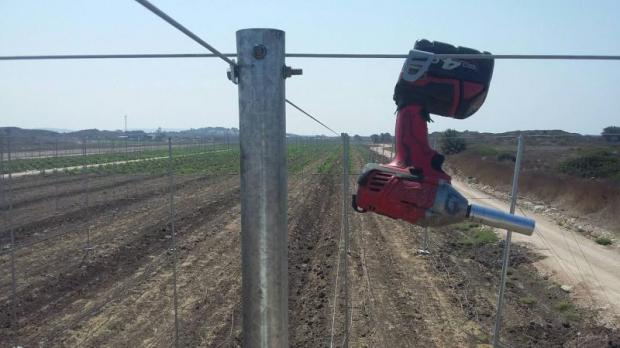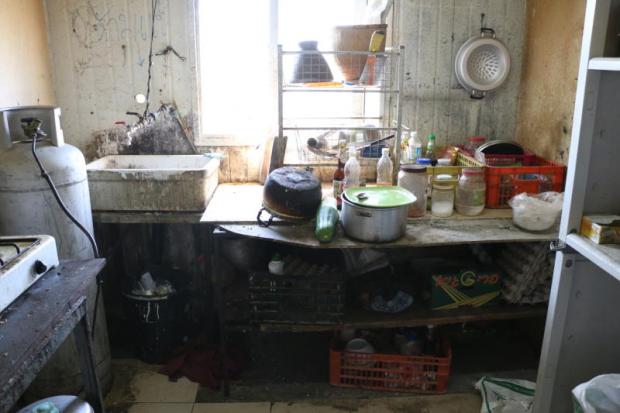'Poor people like us / How much could we really expect?" These lyrics are from a homemade music video on the "Thai migrant labor in Israel" Facebook page, set against clips of Thai farmers picking bushels of pomegranates and loading them onto massive pickup trucks.
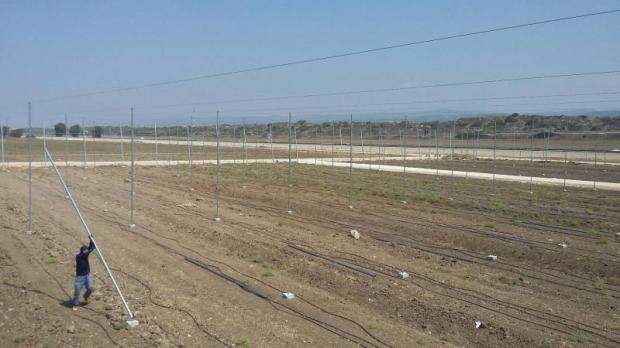
lead-in: caption PHOTOS: SUPPLIED
These workers are part of the 22,000 Thai labourers, mostly from Isan, powering Israel's agricultural sector. They come legally through the Thai and Israeli governments' bilateral agreement, the Thai-Israel Cooperation on the Placement of Workers (TIC). They are, however, intensely underpaid and overworked.
Human Rights Watch describes their work conditions as "serious abuse" in their 48-page report.
According to Sophie Shannir of Kav LaOved, an Israeli NGO advocating for migrant labour rights, the work conditions are punishing, the living conditions are depressing, they are paid below the minimum wage, and often times employers try to cheat workers out of their salaries and their severance pay. The hardship of a worker is twofold if she is a woman -- Haaretz documents the exploitation and sexual harassment of Thai women working in these fields. Both Human Rights Watch and Kav LaOved lay the blame at the feet of the Israeli government for its negligence in enforcing basic laws.

another day, another shekel: Working conditions on an Israeli bell pepper farm.
Human Rights Watch and Kav LaOved have done a great deal of work bringing the issue to light. However, in trying to pressure states to address these issues, human rights organisations necessarily need to simplify narratives. For governments to turn their heads, "serious abuse" cannot coexist with tales of ordinary living.
Yet, there is something immensely important being missed about the lives of Thai workers in Israel. In over 20 interviews, a wide range of experiences were described -- lives that were at times mundane, exhausting, heartbreaking, routine. These are not stories of Israeli oppressors and Thai victims, but stories about Thailand -- of the economic conditions that send migrants to work in isolation in faraway countries, of political conditions that contribute to the Thai government's negligence, of social conditions that allow the Bangkok-based upper-middle class to continue to ignore the realities facing workers. They are also stories of resilience in the face of poverty, of internalised burdens and of quiet, deeply rooted tenacity.
Most were afraid of having their stories published, so this article will focus on the stories of two workers: Somsak and Thanaporn (real names not used). In these short vignettes, narrated in the workers' own voices, some of the complexity of their lives is captured.
LABOUR MINISTRY IN THE DARK
Somsak is from Nakhon Ratchasima (Korat), and has been in Israel for two years, employed on a banana farm in the Northern region, raising structures to protect bananas from inclement weather.
"At home, I worked on a farm, and then I went to work in a factory in Bangkok. I was bored of factory life and wanted to work abroad. I came to risk it and after staying for a little while, I got used to it."
"Every day I wake up at 5am, make food, get dressed, start work at 6am, work until 6pm and then make food, shower and sleep. We don't really go places -- Thais come in 'shop cars' to sell us things from the city."
"I thought I would be growing things, working in agriculture, but I found myself in construction work. This was not at all like anything the Ministry of Labour in Bangkok trained us for. The Ministry of Labour doesn't know what's going on here, none of them have ever spent time here and lived here. During our orientation, they told us about the weather, but not about all these problems here."
"Sometimes our employers abuse us, threaten us and underpay us, and before I informed Kav LaOved, we didn't have rest days. My employer cheats me of my wages, and he doesn't care how I live or eat. There are many problems and the Thai government isn't really interested. I can't really blame anyone, because my employer is the one who pays me at the end of the day."
"Thais here do know about this before coming, through cousins and relatives, so you just have to prepare yourself. You have to tam jai that you're coming to another country and to the lonely lifestyle here."
"My parents are still strong and are working on the farm at home. When they ask me how I am, I tell them I'm fine, otherwise they will worry about me. There are many things I don't tell them."
"I also send money back home to my mother and father -- I've improved their lives so much by coming to work here."
LIVING LIKE BROTHERS AND SISTERS
Thanaporn was initially from Nong Khai, and has been working on a bell pepper farm in the Central-Northern region.
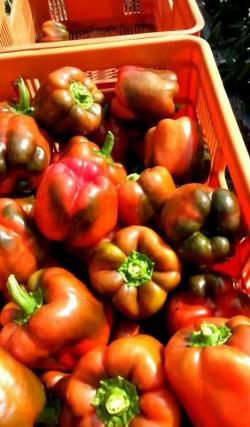
"I was living with my family in Chonburi, but then my wife had a second child. I was concerned because I earned 20,000 baht at home, but I felt my expenditure going up -- I want to give my family a good standard of living."
"The main thing for me is, I'm an Isan person, born into the agricultural sector. I wanted to learn the technology of Israeli agriculture and take this home and improve our farms --modern knowledge about irrigation systems, fertilisers. In the learning aspect, this place has exceeded my expectations: in school we only learn theories, here we actually get to practice it."
"I live my life normally, like living at home -- I wake up and go to work, I meet only Thai people at work. There are only 12 Thai people on this farm so we live like brothers and sisters and share everything. I live in the big city area, so there are shopping centres, and I can still go to the market."
"Working here, is it hard? Yes. But agriculture is like this everywhere isn't it? Sometimes it's harder, sometimes it's easier. If everyone was scared of facing hard work or bad working conditions, they wouldn't have come here."
"Wages are lower than we legally deserve -- it's like when Burmese or Vietnamese people come to Thailand, our minimum wage is 300 baht and theirs is 200. Here it's similar: I know I should be earning 8,000-9,000 shekels per month for all the overtime I put in, but my salary slip always ends up saying 5,000 shekels. Employers do actively try to cheat us -- we know but there's nothing we can do. Some 80% of the people who are here face this, but we are still content."
"I'm not blaming the Thai government, but I've seen many people complain to them and at most they are assigned to different workplaces. But it costs 500 shekels for a taxi to move, and then you need to adapt to a new environment and a new living space. Most prefer to suffer at the same place. It doesn't really matter at the end of the day -- at least we get to eat, live, and send 40,000-50,000 baht back home."
"We live in rooms that are three metres wide, which just fits two suitcases, one bed, one fan and a small table for personal belongings. But can we live here? Of course, we don't really sleep here so we aren't that fussy."
"If I were to give advice to others considering coming to Israel I would say: let this be your last resort."
GOVERNMENT NEGLIGENCE
What initially stands out about these stories is the Thai government's lack of concern for these workers -- their workers. While it is inexcusable that the Israeli government continues to turn a blind eye to mistreatment of migrant labour, this is not an issue particular to Israel -- Thanaporn points to Thailand's own double standards with Burmese or Vietnamese labour. But for the Thai government to condone the mistreatment of its own citizens is equally, if not more, inexcusable.
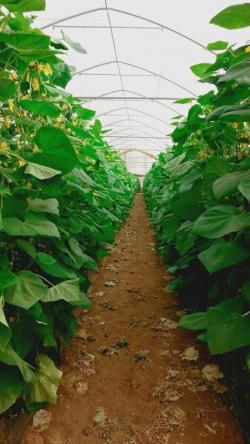
Somsak's grievances with the government are echoed across many interviews, for good reason.
When applicants are chosen for the TIC programme, they are made to attend a Pre-Departure Administrative Arrangements and Orientation programme at the Ministry of Labour, and it truly is that: administrative. For many people, certainly for Somsak and Thanaporn, this was their first time travelling abroad -- and they did so with the knowledge that they were likely to stay in Israel for five years. The orientation programmes -- conducted in cooperation with the International Organization for Migration -- teach them about Israel's weather and geopolitical conditions. They touch on workers' rights and ways to address grievances, but understate the grievances and overstate the potential for redress.
It is not simply that the government prepares them inadequately -- their support for workers overseas is also inadequate. When Thai workers need help, their first recourse is to Kav LaOved, because the NGO makes itself available to workers by visiting the farms directly.
In contrast, to contact the Thai authorities, workers are directed to a hotline for Thai workers abroad that goes through the Ministry of Labour in Bangkok.
The Royal Thai Embassy in Israel has an Office of Labor Affairs which occasionally provides Thai workers with health checkups and works on renewing workers' visas. However, it is difficult for workers to file complaints, especially when they only have Saturdays off, but the Thai embassy is closed on Saturdays.
When complaints do get addressed by the Ministry, it is in ways insensitive to the financial constraints of the workers: they move people to a new workplace, but, as expressed by Thanaporn, the cost of moving is one months' salary.
The Thai government has made gestures towards the issue. But for the government to gain the trust of these workers, it needs to do much, much more.
SHOCK AND PRIVILEGE
Another striking thing about these interviews is the way conditions in these stories are narrated.
Rooms three meters wide. 12-hour working days. Salaries below minimum wage, overtime not paid. Living quarters crammed 12 people to a room. These are also things captured in the Human Rights Watch report, also recounted by Kav LaOved representatives. But in Somsak's and Thanaporn's stories and in every single interview conducted, the tone is remarkably different: these conditions are matters of fact, expected. There is acknowledgment of severe discontentment, especially on the salary issue, but a sense that this is simply the way life is.
Shannir encounters this in her work. "Sometimes they are working in really terrible conditions, with bad housing, and they don't think about going to complain." Noon, a Thai intern at Kav LaOved, gives a similar account: "People in Isan are very tolerant of hardship. If we don't explain their rights to them they don't feel aggrieved." According to Matan Kaminer, a PhD researcher on Thai-Israel migration, "People are already used to being second class citizens, part of a marginalised rural class, so it is not surprising for them to have the same thing in Israel."
Thais are blind to our own complicity. While wealth is concentrated in Bangkok to the point where Thailand should not be called an upper-income country but an upper-income city surrounded by a lower-income periphery, the severe inequality between Bangkok and Isan has created power dynamics that are articulated not just economically but socially. Somsak worked in Bangkok factories before going to Israel, as did many interviewees, where conditions were described as similar, if not worse. The social disdain is also not new: encoded in the commonly used term baan nok is a condescension so powerfully felt that Isan people often do not identify themselves as of Isan origin.
As such, the language of shock and outrage around reports of "serious abuse" exemplifies a certain kind of privilege. This is not to say that these conditions should be acceptable. Rather, this is to say that these conditions have always existed for some people, and for them to meet difficult conditions with constant indignation would make living simply impossible.
"Kav LaOved shouldn't have to exist if Moshav [farm] owners recognised peoples' rights in the first place," Noon says.
So often, the privileged public and human rights workers alike conceptualise the problem in terms of what "should" happen: people shouldn't live this way, not in tiny rooms, people shouldn't have to work this much, not 12 hour days. Yet, there is no natural force adhering to this moral norm -- that much is evident in the slum communities around any building development in Bangkok or even maid's quarters in most Bangkok homes.
Recognising our positions in systems of complicity is difficult -- especially when human rights advocacy embeds in us this idea that good will inevitably be achieved. But as long as some continue to benefit from the system of capitalism, neither the Thai nor the Israeli governments can bring the kind of change truly needed for the rural poor to be equally shocked and outraged by 12-hour work days. The price of privilege includes taking responsibility for the discomfort, with the constant awareness that more action will always be needed to turn what should be into what is.
POWER TO PERSEVERE
In the song from the opening of the article, the chorus goes: "But I know poor people / have the power to persevere."
Rather than seeing this through the lens of human rights, Kaminer characterises the story as one of "hard economic and political realities". "People go to Israel from the poorest places. Udon has become more prosperous so fewer people are going to Israel from there, whilst more people going from Korat. The dynamic of the flow is mainly determined by hard socio-economic realities."
Thanaporn goes to learn Israeli technology, but more than that goes to feed his second child. Somsak goes to escape the boredom of Bangkok factories, but more than that goes to support his mother and father. "If people have money, of course they wouldn't come to Israel," says Somsak. This is why, despite Thanaporn's optimism, he calls Israel a "last resort".
In Mr Kaminer's words, "It is important not to romanticise those circumstances, to realise the challenges and difficulties they face. This is not to see migrants as helpless children who are deserving of pity, but as people making choices under very constrained circumstances in which they find themselves."
It is the recognition of both this hardship and this choice that undercuts the resilience of Thai migrant workers in Israel. Dignity and human rights are conditional things granted by states and societal elites, but tenacity is the one thing that can never be touched. On the Line app, nine interviewees proudly affix khon jon or "poor person" to their names -- money can be given and taken away, but this ability to overcome hardship is what gives them their power.
The song closes out with: "No matter how hard life is / my heart still has the strength." And with this strength, Thai-Israel migration lives on.
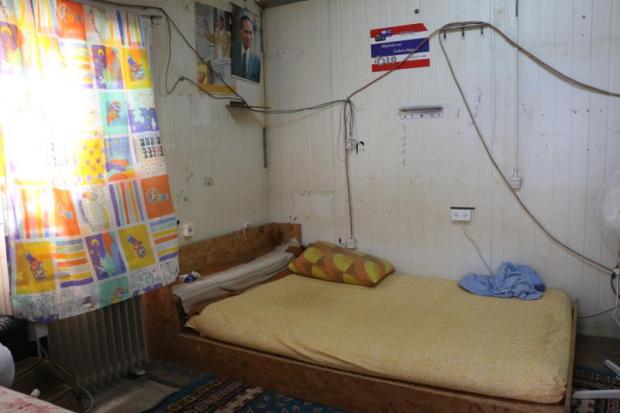
home away from home: The typically cramped living quarters of Thai migrant workers in Israel's farm sector.
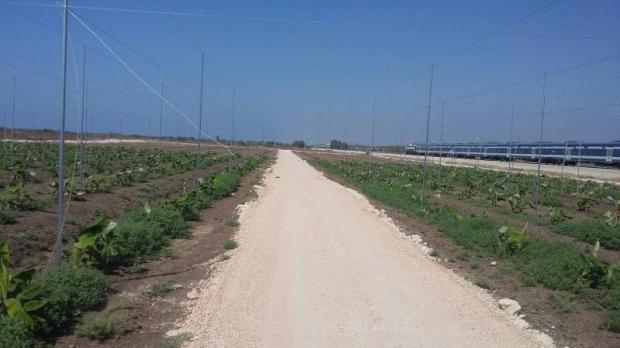
toiling in the sun: Above and below, the farms that employ Thai migrants, called 'Moshavim', were initially designed as agricultural cooperatives although many are now industrial enterprises. PHOTOS: SUPPLIED
